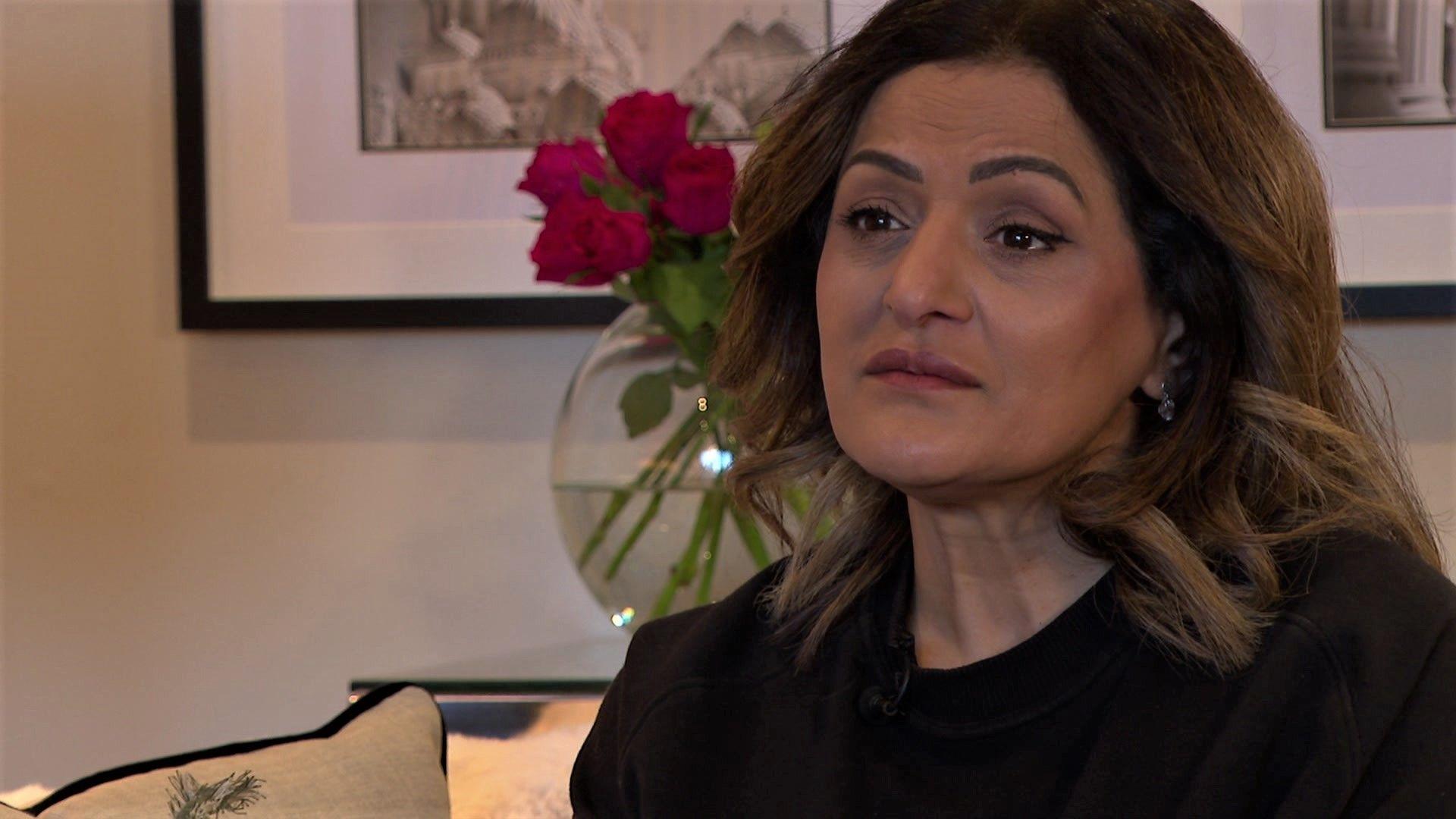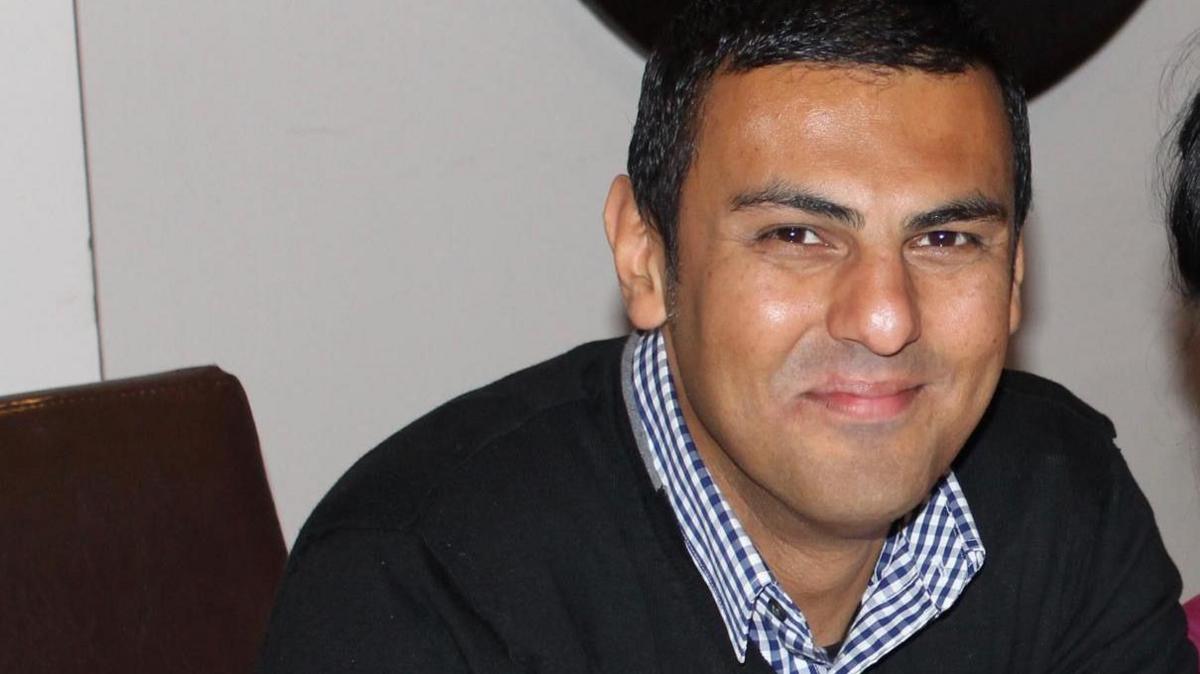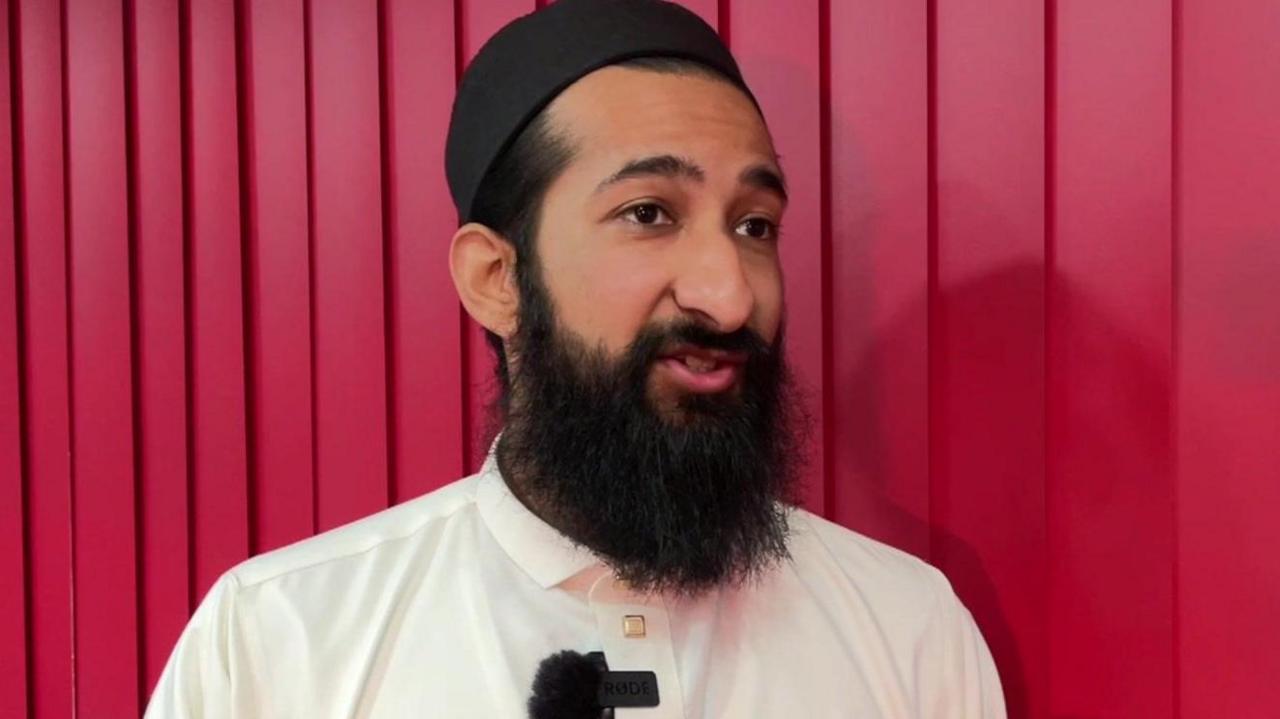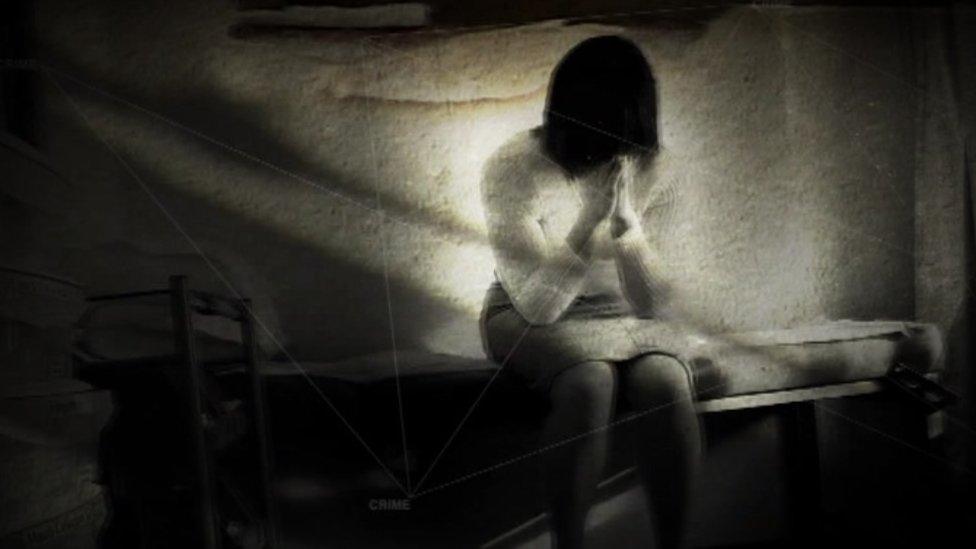'I lied about my husband's death to protect him'

Akeela Mohammed organised Doncaster's first Muslim Wellness Conference
- Published
A woman who lied about the cause of her husband’s death to protect his memory after he took his own life has said she wants to reduce stigma about depression among Muslims.
Ayaz, from Doncaster, died in 2019, but his wife Akeela Mohammed initially told family and friends he had died of a heart attack.
However, she said she had later realised that people needed to talk more about their mental health and seek help.
Last month, she launched the city's first Muslim Wellness Conference, aiming to tackle taboos around suicide and depression, saying: “It doesn’t make you a lesser Muslim if you are struggling with your mental health problems."
Ms Mohammed said Ayaz, who was 48 when he died, was an "amazing person and dad".
“On the surface he looked a really strong person, a happy person, but in the end these demons got him,” she said.
Ms Mohammed hid the true cause of his death for six months because she felt people would not understand that he had mental health problems.
“I knew what they would say,” she said.
“As a Muslim man, you’re seen as the head of the family and where do you go? Who would you talk to? You can’t talk to your community because no one does.”

Ayaz, from Doncaster, took his own life in 2019 at the age of 48
Ms Mohammed said Muslims were brought up to believe that taking one's own life was forbidden.
She said there were "not many organisations" dedicated to helping Muslims who were struggling with depression.
"When you think your community are going to think you’re crazy, or they don’t want you to talk about it openly – you’re going to hide it, and that’s going to make it more difficult,” she added.

Sultania Mosque's imam Habeeb Minhas said he hoped more people would be able to access mental health support
The Muslim Wellness Conference, organised by Ms Mohammed, was held in Doncaster on 23 November.
Imam Habeeb Minhas, from the city's Sultania Mosque, who spoke at the event, said: “There’s a lot of stigma around mental health, especially in our Muslim community. It’s a very taboo subject and not spoken of."
He said he hoped the conference would "open the doors so people can be vocal about what issues they are going through”.
Ms Mohammed said her aim was to improve access to support for people suffering from mental health problems so they would not have to go through the same experience as her husband.
“I hope he would be proud of what we are doing now,” she said.
If you have been affected by the issues raised in this story, you can access more support via BBC Action Line.
Listen to highlights from South Yorkshire on BBC Sounds, catch up with the latest episode of Look North or tell us a story you think we should be covering here, external.
Related topics
- Published12 February 2017
